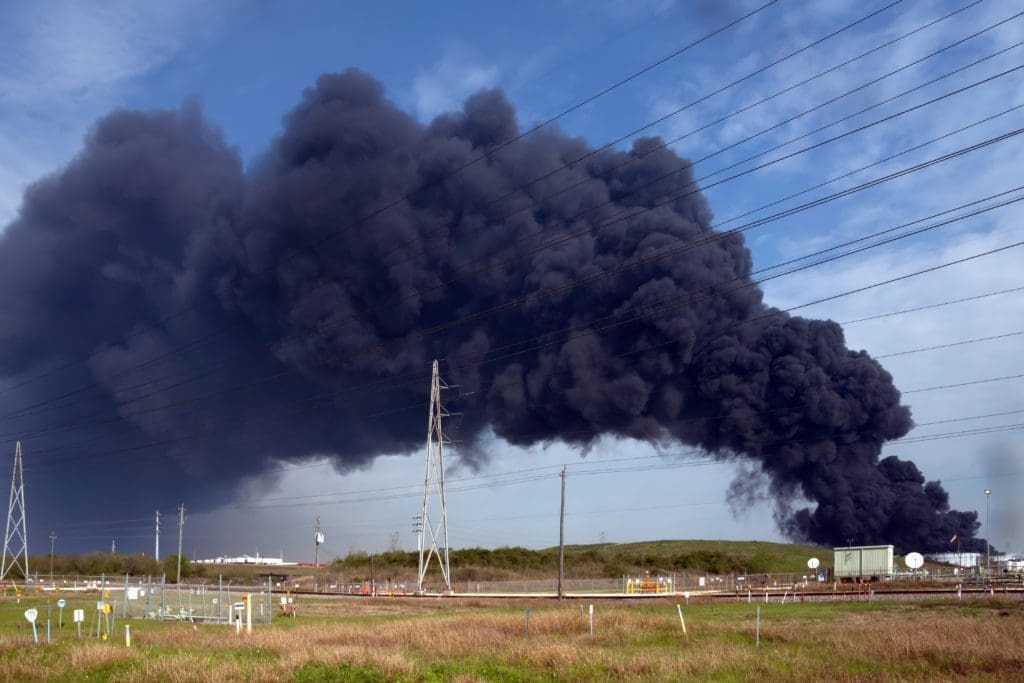AirMail - Storage & Export Terminal Permit
Open Storage & Export Terminal Permit Applications
Do you have questions or need more help creating your comments? Email us at airmail@airalliancehouston.org. We may also be able to support/represent you if you are interested in participating in a hearing to challenge this permit.
Please make sure to contact your elected officials about your concerns regarding this proposed facility. They have networks and influence to effect change, but they need to hear from you first! Not sure who represents you? Check here.
What are Storage and Export Terminals and why are they an air quality concern?
Storage and export terminals are industrial facilities with large tanks for storing oil, gas, and other petrochemical products before transport to end users or other storage facilities.
The Houston Ship Channel’s 52-mile stretch is home to numerous storage and export terminals, due to the region’s status as an expansive petrochemical manufacturing complex.
Sources of air emissions near storage and export terminals include:
- Refinery activity
- Construction activity for new facilities
- Explosions and fires
- Transport vessels associated with project operation
Communities located near storage and export terminals are disproportionately exposed to harmful air pollutants including increased volatile organic compounds (VOCs) and particulate matter (PM). The risk of fire or explosion of storage tanks from spills or uncontrolled releases is also a concern. These incidents can lead to higher concentrations of toxins and highly corrosive chemicals in the air that can result in conditions that are immediately dangerous to the safety and health of nearby residents. In addition, emissions from the oil and gas industry contribute to ground-level ozone (smog) with both short- and long-term health impacts.
The health impacts of air pollution exposure include:
- Damaged cells in the respiratory system
- Stress to the heart and lungs
- Aggravated respiratory conditions, including asthma
- COPD (Chronic obstructive pulmonary disease)
- Increased likelihood of cancer development over lifetime
- Shortened life span
Additionally, individuals who have been consistently exposed to air pollution may be more likely to suffer severe health impacts from COVID-19.
In addition to the potential public health impact of air toxics, the industrial processes associated with storage and export terminals – and the attendant refineries and petrochemical plants they service – release carbon dioxide, a common greenhouse gas. Increased levels of carbon in the earth’s atmosphere lead to global climate change.
Water contamination is another severe environmental concern. Wastewater from industrial processes can contaminate surrounding groundwater and surface water. During catastrophic weather events such as heavy rains and floods, the runoff of toxic materials may infiltrate surrounding communities; compounding the risks associated with extreme weather.
Storage and export terminals are found along the Houston Ship Channel. The fenceline communities impacted by these facilities include Pasadena, Galena Park, Deer Park, La Porte, Channelview, and Baytown, among others, many of which are majority communities of color and with lower incomes. These residents suffer a disproportionate burden of the impact of the surrounding industry.
This industrial proximity is detrimental to resident health and is known as “double jeopardy.” In other words, communities are both impacted by toxic emissions and pollutants as well as risks of exposure to chemical accidents.

